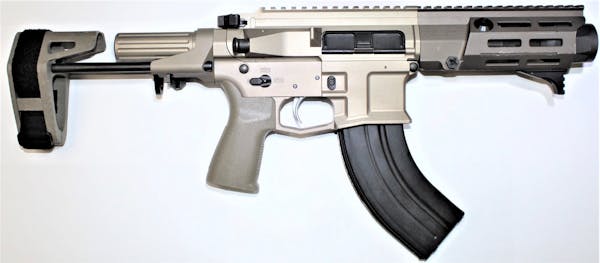When Shereen Sabet made the decision to become a more devout Muslim, she was ready to adhere to the religion's modest dress code: A woman must wear clothing to cover her entire body, except for her face, hands and feet, in public.
Then another thought entered her mind: "But wait a minute, I love to go swimming and snorkeling and I'm a certified scuba diver. Can I still do those things and abide by the dress code?"
Sabet, who lives in Huntington Beach, Calif., tried to research her options. Because part of the dress code also discourages body-clinging attire, even surf vests or rash guards were too skin-tight. She even considered dry suits, which divers use, but at $800 to $2,000 a suit, it was too costly.
Hiking pants and swim caps didn't fare well, either, so Sabet, a microbiology scientist at Cal State Long Beach, decided to start a line of Halal swimwear, called Splashgear. The idea was to create swimsuits that would conform to the Muslim dress code, but also be comfortable and fashionable.
The original suit design was based on surf wear and featured floral Hawaiian print separates: the "Island Shirt" -- a looser-fitting version of the rash guard, with more fabric in the chest area and a tapered waist -- and swim pants, basically board shorts turned into straight-leg pants.
A swim cap and swim hood, similar to what scuba divers might already wear, completed the suit.
"I understand most people are accustomed to not seeing a lot of clothing on the beach or in the water," Sabet said. "We don't want to look like freaks or stick out like sore thumbs for being so covered up on the beach, but I wanted to help make water activity accessible to Muslim women."
That was in 2005. Today, Sabet has customers all over the world, including Canada, Asia and Australia. She has updated the design of the suit. Gone is the Hawaiian print, replaced by suits in solid colors with an athletic stripe down the side.
The swim shirts, once made of nylon, are a more durable knit fabric that's chlorine-resistant. The swim bottoms come with a drawstring waist with a cord lock.
The pieces are sold separately -- $44 to $47 for the swim shirts, $50 to $60 for the bottoms and $12 to $15 for the hair covers.
At the beach, Sabet occasionally gets asked: "Are you, like, a Muslim surfer girl?"
"Usually, people will still stare," she said. "We went on a cruise in February, and we wanted to go to the Jacuzzi, and I wore the suit. I'm sure people were wondering what the heck I had on. I wish they would ask instead of just staring, but I understand."
As it turns out, it's not just Muslim women who buy Splashgear suits. Sabet said her customers include women who are sun-sensitive or have skin cancer. Conservative Christian and Jewish women also have ordered the suits.
"There are plenty of plus-sized women who want more coverage, too," she said. "Not everyone can wear a bikini, for different reasons."
With requests coming in from Muslim and Mormon men, too, there are plans to launch a modest swimwear line for men.
For now, Splashgear suits are sold only online (www. splashgearusa.com), but Sabet hopes stores will stock her suits eventually.
In heated western Minn. GOP congressional primary, outsiders challenging incumbent

Minnesota Sports Hall of Fame: A class-by-class list of all members

This retired journalist changed professional wrestling from Mankato

